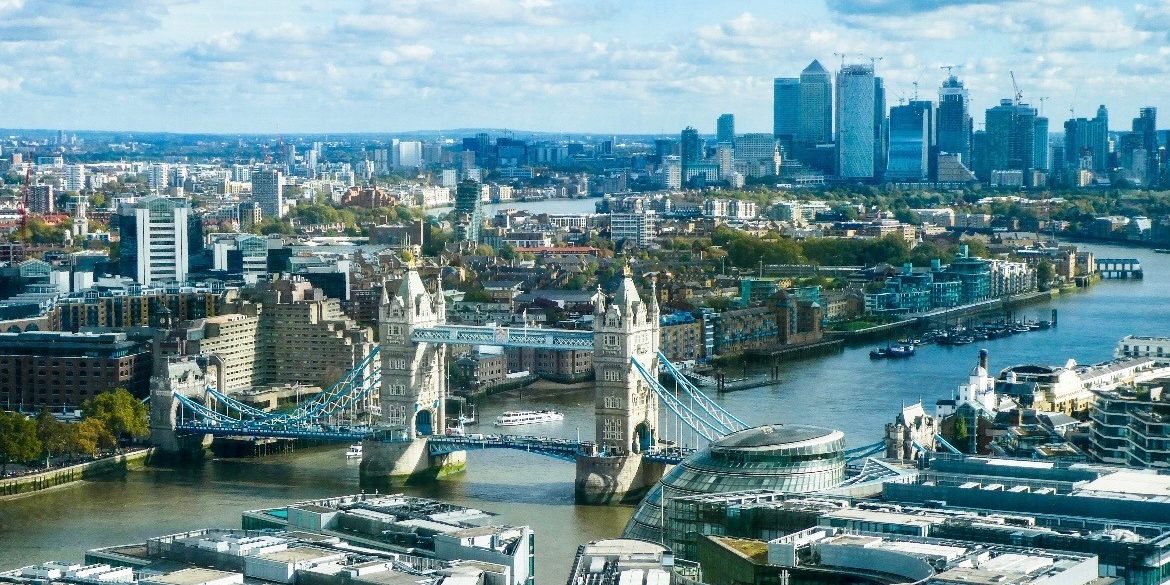UK inbound tourism predicted to surge to record highs
As the year comes to an end, the UK’s latest travel statistics have recorded a surge in inbound tourist visits and spending in 2025, predicting further increases in the coming year.
Statistics estimate 44.3 million inbound visits to the UK in 2025, with visitors spending £34.6 billion. Using a mix of data sources, from the Home Office, Visa, Forward Keys, and Amadeus, inbound tourism was judged by VisitBritain to be slightly higher in the first half of 2025 than in the last half.
Compared to 2024, the data estimates an increase of 4% from approximately 42.5 million visits. This marks a significant recovery since the impact of the pandemic.
The data has not yet been supported by the International Passenger Survey, subjecting the estimation of 2025 inbound performance to possible recalculation going into 2026.
Nonetheless, the forecast anticipates welcome developments for the UK economy, boosting engagement with local businesses and creating new job opportunities in such businesses and tourist hubs across the nation.
As more money flows into the country, more money can fund these businesses within the UK working to make it an attractive destination
As British Tourist Authority Chairman Nick de Bois said, “tourism is one of [the UK’s] greatest industries that creates opportunities for all”, with “huge potential to create immediate and sustained economic growth”.
Chairman de Bois also predicted that, by 2030, the tourism industry would worth “an additional £4.4 billion per year” to the UK economy, as those who visit are “16% more likely to invest in the UK’s businesses, products and services”. Evidently, the positive image of the UK boosted by increased inbound tourism is predicted to both develop the country’s attraction to other potential tourists and contribute to long-term economic growth.
Businesses such as souvenir shops, tour guides (within buildings such as castles and museums), and tourist attractions across the UK are a few examples of those which benefit from the steady increase in inbound tourism.
The Office for National Statistics estimated that tourism was responsible for £58 billion of the UK’s economic output and support 1.2 million jobs back in 2023. As more money flows into the country, more money can fund these businesses within the UK working to make it an attractive destination.
As more affluent tourists are drawn to visit the UK, entertainment, shopping, and accommodation services see a greater inflow of profit and positive attention
Especially for high-end tourism, the UK cements its attraction to international visitors through its rich cultural heritage and history, and how these contribute to an appealing experience of food, shopping, lifestyle, etc.
Statistics show that, pre-Covid, the UK had the largest market by value of high-end visitors in any individual country across continental Europe. As more affluent tourists are drawn to visit the UK, entertainment, shopping, and accommodation services see a greater inflow of profit and positive attention.
Wealthy visitors are particularly noted to be attracted to the UK, sometimes for long-term stay, for its reputation as a global business hub, as well as being home to some of the top universities globally, such as Oxford, Cambridge, and the London Russell Groups.
Outside of smaller local businesses, the UK also attracts guests through exclusive events and national monuments. London alone hosts massively popular events, such as London Fashion Week and the London Marathon (with Wimbledon, even in the outer suburbs of London, hosting major sporting events), causing tourists to flock from around the world to either participate or spectate.
There is opportunity for new experiences of British culture, financial gain, high-quality education, or just admiration for a new environment
Outside of London, monuments like Stonehenge, and idyllic rural areas that also serve as major tourist hubs, like the Lake District or Isle of Wight, attract visitors to spots all throughout the nation.
What this suggests about the UK as a travel destination is that it is one of abundant opportunity. There is opportunity for new experiences of British culture, financial gain, high-quality education, or just admiration for a new environment. More so, the attraction of historical sites or monuments ensures their maintenance, to both preserve the image of the UK and retain the attention of inbound visitors.
When the UK maintains this reputation to a high enough standard, tourists leave satisfied, and thus with positive experiences to share either among family and friends, or to a wider audience, for instance on social media. Positive publicity circulates in social spaces across the world, boosting the UK’s global image as an appealing travel destination.
Evidently, it’s no surprise that the UK is subject to surges in inbound tourism. Especially after the blow dealt by the pandemic to the tourism industry, the statistics are predicting great benefits for the UK’s GDP and smaller businesses alike, in 2025 and in the years to come.

Comments